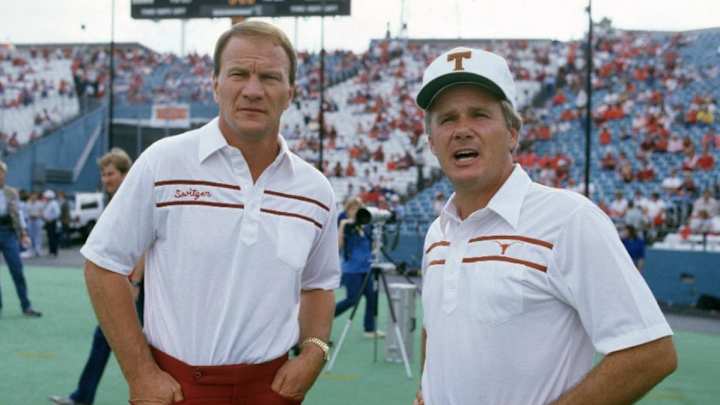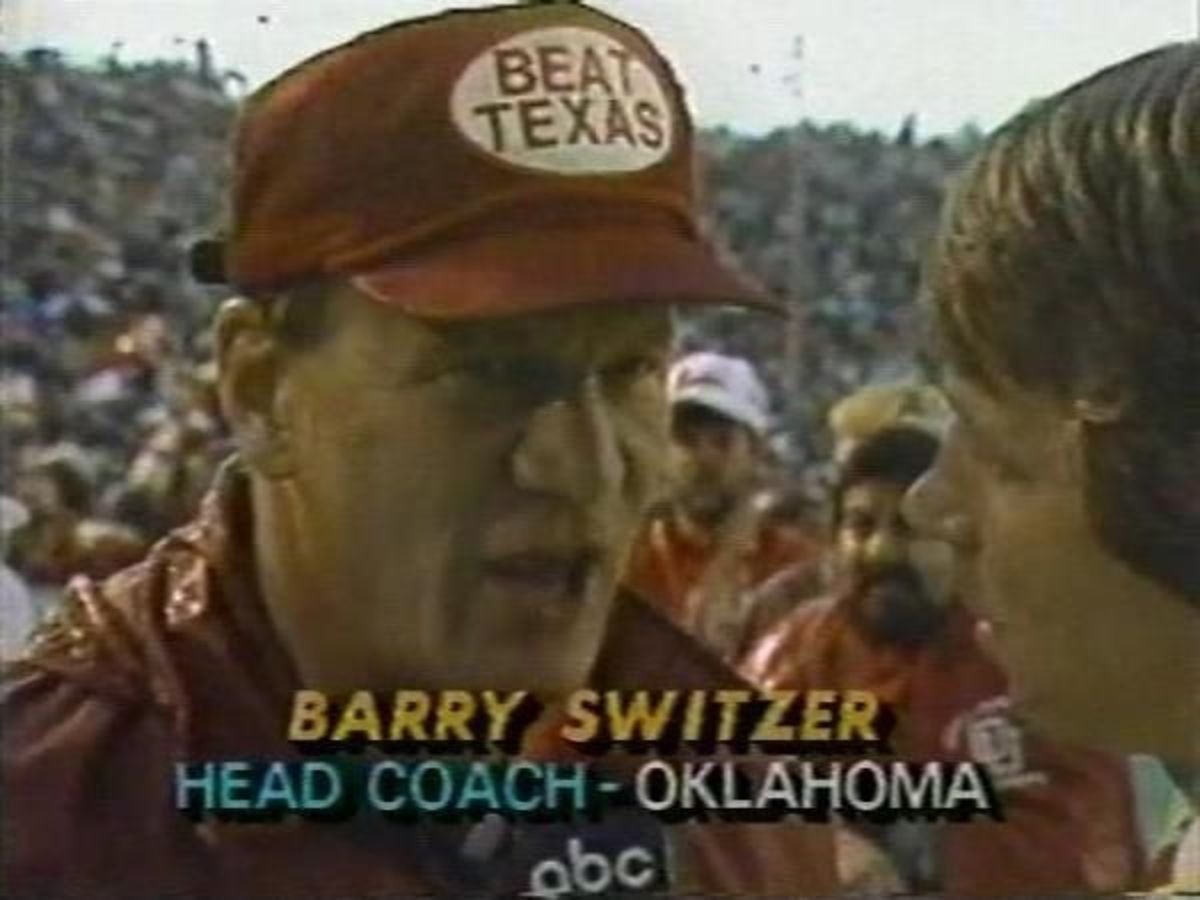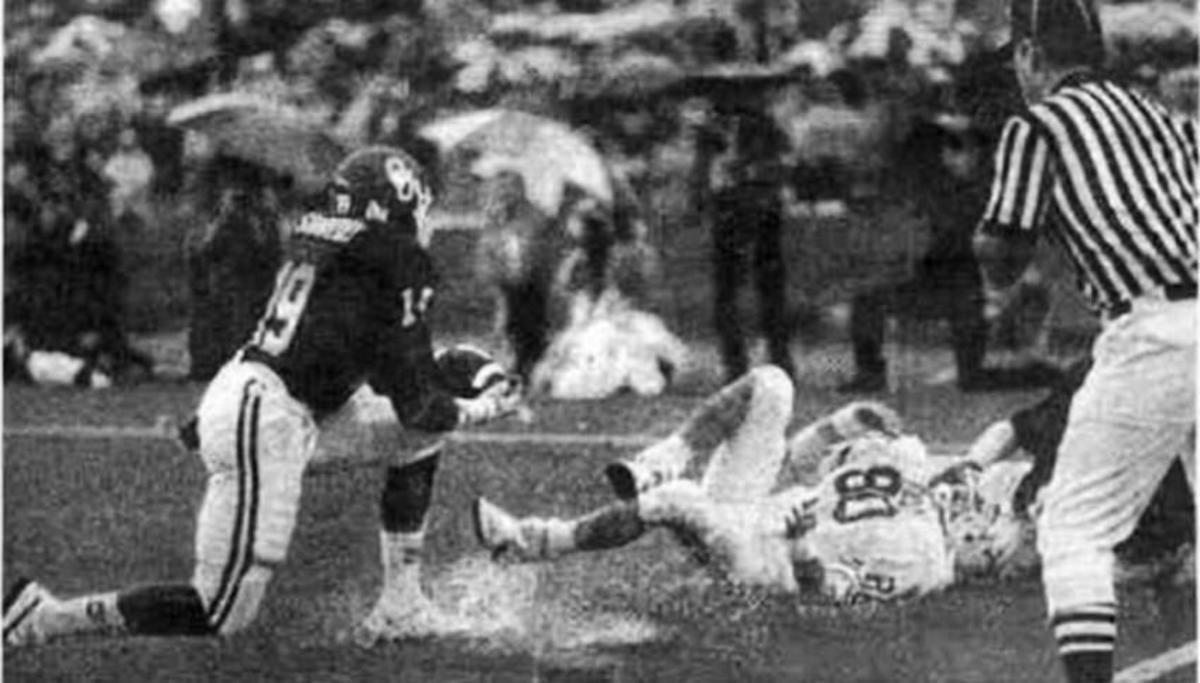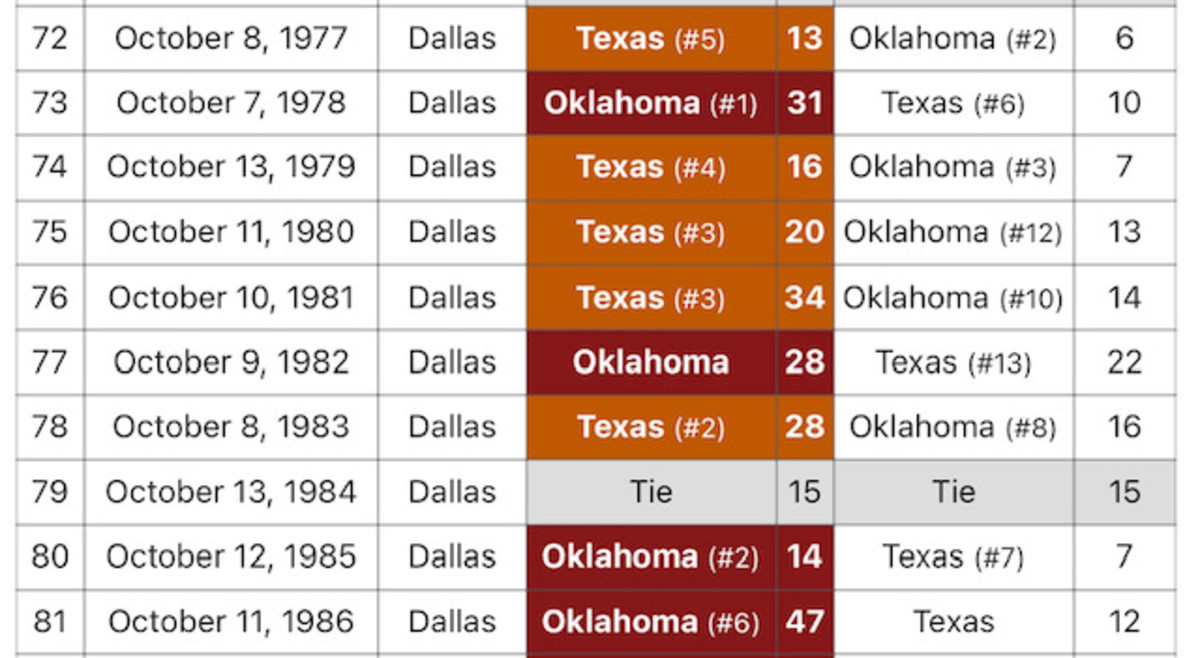In Memoriam: Barry Switzer remembers Red River Rival Fred Akers

Fred Akers, the former Texas coach whose Longhorn teams were frequently a thorn in Oklahoma’s side, died Monday from complications from Alzheimer’s, according to the Austin American-Statesman. He was 82.
Former Texas head football coach Fred Akers, who succeeded Darrell Royal and almost won two national championships, died Monday, his daughter Stacey posted. He was 82.
— Kirk Bohls (@kbohls) December 8, 2020
Akers coached the Longhorns from 1977-86 and went 86-31-2 during his time on the Forty Acres. Texas fans never fully embraced Akers because he came up short of the legacy of Darrell Royal, who won three national championships. But Akers himself came within two Cotton Bowl losses of winning two national titles.
When Akers took the Texas job in 1977, he was suddenly pitted against his old University of Arkansas teammate — OU legend Barry Switzer. One of Akers’ primary tasks was to slow Switzer’s incredible start: Switzer started 41-3-2 in his first four seasons and was 3-0-1 against the Longhorns.
Texas beat OU in four of Akers’ first five seasons.
“He was a year behind me. We played together,” Switzer told SI Sooners on Monday night. “I always liked Freddy. Very likable guy.”
Akers had already coached against Switzer once before he got to Texas: his 1976 Wyoming team played OU on Christmas Day in the Fiesta Bowl (OU won 41-7).
Akers’ run in Austin coincided with Switzer’s one brief down stretch: as Switzer’s 1981, ’82 and ’83 teams went 7-4-1, 8-4 and 8-4 during what Switzer has called a dip in his team’s talent, Texas won the Red River Rivalry two out of three years by scores of 34-10 and 28-16.
The Akers-Switzer showdowns were almost always tight. Texas beat OU 13-6 in 1977, 16-7 in 1979 and 20-13 in 1980, while OU won 28-22 in 1982 and 14-7 in 1985.
They also tied once — the infamous 1984 showdown played in a driving rainstorm.
Switzer needed something to keep the rain out of this eyes.

“I’m wearing that “BEAT TEXAS” hat, but I didn’t know I was wearing that son of a b****. ,” he said. “Everybody thought I was wearing it on purpose. But it was raining and the equipment managers handed me a hat. Never told me it was a “BEAT TEXAS” hat.”

No. 3-ranked OU held a 15-12 lead over the No. 1-ranked Longhorns in the final seconds before Keith Stanberry intercepted Todd Dodge’s pass in the end zone. Stanberry’s takeaway was nullified, however, when officials incorrectly determined he was out of bounds. Akers then elected to kick a field goal on the game’s final play to force a 15-15 tie.
Still wearing his new hat, Switzer gave chase as the officials ran off the field, then gave an impassioned postgame interview. He still gets agitated thinking about
30 yrs ago we were screwed in TX! Keith Stansberry intercepts; ref didn't give to us! Still have the red ass! #coachescabana #Sooners
— Barry Switzer (@Barry_Switzer) October 8, 2014
In nine of their 10 meetings at the Cotton Bowl, either OU, Texas or both were ranked in the top six of the AP poll (eight times, one or both of the combatants was ranked in the top three). That includes four games in which both teams were ranked No. 6 or higher.
Switzer’s teams leveled things against Akers by winning three of the last five matchups, including a 47-12 blowout in 1986.
“Freddy was kind of a private individual,” Switzer said. “I do remember he was the best dancer on the team. He was a hell of a dancer. Quick-footed. Great athlete, really.
Played quarterback, halfback, caught passes, played defense — could do it all. And of course, he kicked.”
Switzer said he spent the night with Akers and his wife “a couple years ago at his home down in San Marcos (TX). … He had his dog. Always carried his little doggy around.
“That was the last time I was with Fred.”
Akers’ first year at Texas in 1977, the Longhorns went 11-0, won the Southwest Conference and tailback Earl Campbell won the Heisman Trophy. But No. 1-ranked Texas lost 38-10 to No. 5 Notre Dame in the Cotton Bowl.
In 1983, Texas again went 11-0, won the SWC and went into the Cotton Bowl with a No. 2 ranking, but this time lost 10-9 to No. 7 Georgia. That night, No. 5 Miami shocked No. 1 Nebraska in the Orange Bowl. The Longhorns’ loss thus opened the door for the Hurricanes to be awarded their first national championship.

Akers was hired at UT after just two seasons at Wyoming. After going 7-4-1, 8-4 and 5-6 in his final three seasons in Austin, he was fired after the ’86 season. Akers coached four losing seasons at Purdue before retiring in 1990 and finished his career with a 108-75-3 record.
Switzer’s relationship as a rival with Royal — a former Sooner All-American who starred at OU from 1946-49 — was always frigid. That changed when Akers was hired, as two old friends were reunited from across the Red River.
“It was different,” Switzer said. “Darrell was the old guard. He was from the ‘49er group, what we called ‘em here.
“I always liked Fred.”
Akers was a Texas assistant under Royal from 1966-74. When he became head coach, he junked the wishbone for the i-formation, moved Campbell from fullback to tailback and turned Texas’ fortunes.
Five years later, to feature Marcus Dupree, Switzer did the same thing.
To get the latest OU posts as they happen, join the SI Sooners Community by clicking “Follow” at the top right corner of the page (mobile users can click the notifications bell icon), and follow SI Sooners on Twitter @All_Sooners.
